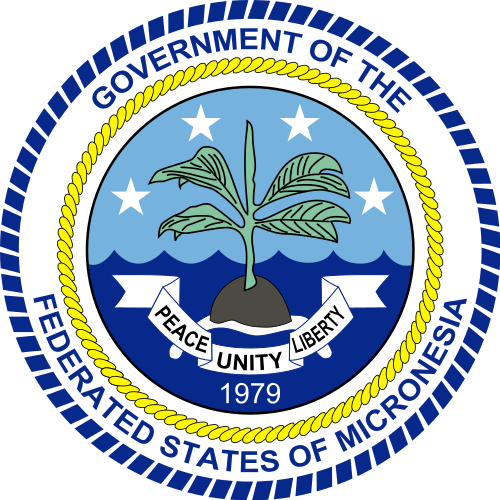
FSM Information Services
Press Release
President Panuelo Signs Decree to Further Reduce COVID-19 Risk by Adjusting Fishing Operation Procedures; Bartering, Trading, and Local Sale of Fish Temporarily Prohibited, Transshipment to Occur at Sea in Designated Areas
PALIKIR, Pohnpei—In the continued interest of the health and safety of the Nation’s citizens, as well as the continued economic prosperity required for implementing forthcoming recovery measures, on April 3rd, 2020, His Excellency David W. Panuelo, President of the Federated States of Micronesia (FSM), amended the March 14th National Declaration Placing the Entire FSM under a State of National Public Health Emergency in Connection with the COVID-19 Pandemic with respect to providing temporary measures for transshipment activities. The primary purpose of this decree is to lower the risk of introducing the COVID-19 coronavirus into the FSM. This release intends to summarize the decree for a wide audience; citizens with a personal or financial interest in the Fishing Industry are encouraged to read the decree in full here: https://gov.fm/files/COVID-19_Degree_to_Amend_Fisheries_Transshipment_April_3_2020_SIGNED.pdf
For most citizens, the most immediately relevant portion of the decree is that the bartering, trade, and local sale of fish is explicitly PROHIBITED; no person is allowed to approach or contact any fishing vessel. Any violation of this decree shall be subject to penalties set by law pursuant to Section 803 of Title 11 of the FSM Code.
With limited and specific exceptions, all transshipment activities in the FSM are to be carried out at sea (instead of at ports) in designated transshipment areas which are beyond three nautical miles from a given State’s baselines. These areas will be identified by the National Oceanic Resource Management Authority (NORMA), which shall also issue appropriate guidelines regulating the transshipment. 72 hours prior to transshipment activities, a notice must be provided in advance to both NORMA and the FSM Department of Justice using applicable reporting tools. Amongst these requirements include the body temperatures of all crewmembers of the fishing vessels intending to transship, taken at 24-hour intervals prior to transshipment. These intervals would occur at 72 hours, 48 hours, and 24 hours prior to transshipment. This information may be shared with the State Governments for health assessments and coordination purposes.
The limited and specific exceptions mentioned include that some vessels, such as frozen longliner fishing vessels, are allowed to transship at port. However, to do so the fishing vessel must observe the 14-day quarantine at sea, and no crewmembers are allowed to disembark at port. (The 14-day quarantine starts from the date of the last contact with another vessel or port.)
Domestic fishing vessels—which are defined as vessels that are flagged in the FSM or have a base of operations anywhere in the Nation—are allowed to call port for repair, maintenance, and provisioning at a given port’s Anchorage area; these vessels shall remain in the Anchorage area only.
With respect to transshipment at sea, Quarantine procedures are suspended until further notice. Immigration and Customs clearances shall be conducted electronically. This is to help ensure that officials from the National and State Governments are not required to physically board or visit the vessels, as the main idea is to limit contact between human beings so as to limit the spread of the COVID-19 coronavirus.
“I will take every action necessary to protect the health and safety of Micronesians,” President Panuelo said in a statement. “Limiting person-to-person contact through social distancing is part of protecting our citizens’ health—but in the medium to long-term, our continued engagement with the global economy is necessary for not only for the provisioning of our forthcoming economic recovery plan, but for the Pacific region’s food security.”
“I have said before that the law that works the best is our conscience, but in the event our conscience fails us I have also ordered the Secretary of Justice to take measures under the law to ensure full enforcement of this decree.”